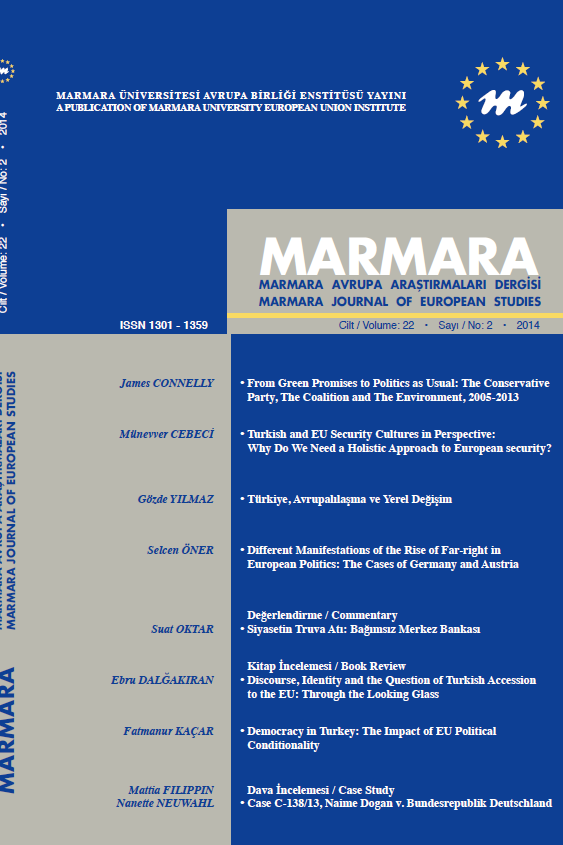ENTREPRENEURSHIP TRAINING FOR YOUNG PEOPLE: IMPLICATIONS FROM USER NEEDS ANALYSIS FOR e- LEARNING PLATFORM YEU
Long-term unemployment doubled in Europe between 2007-14 despite therecent recovery which is slowly translating into more jobs. The effects are felt severely by youth; the longer they remain unemployed, the more difficult it is for them to get hired again. As a method to cope with youth unemployment, the EU’s Leonardo Programme has been funding projects intended to enhance the entrepreneurship skills of young people. YENTELS (Young European Entrepreneurs E-Learning Suite) and YEU (Youth Enterprise andUnemployment) projects are examples of such platforms that provide online resources for enterprising. The e-learning platform, including a serious game, developed during YEU project paid close attention to young people who are not employed, in education or training. This study aims to report the process and results of the user needs analysis conducted for the YEU e-learning platform inorder to tackle the issue of youth unemployment by incorporating the viewpoints and needs of multiple stakeholders in the context of entrepreneurship. By means of primary and secondary research methods, feedback was obtained from a total of approximately 40 stakeholders and 900young people across Europe. A range of quantitative and qualitative research findings were identified in the areas of youth unemployment, entrepreneurship skills and policy making, with general observations and experiences also recorded by the project partners from seven countries. The conclusions of the analysis present valuable implications in the areas of European policies, young people’s employment, and business start-up issues. The study also provides recommendations at a general level to improve the employability of young people.
Anahtar Kelimeler:
EU youth unemployment, entrepreneurship, e-learning, user needs analysis, serious games
ENTREPRENEURSHIP TRAINING FOR YOUNG PEOPLE: IMPLICATIONS FROM USER NEEDS ANALYSIS FOR e- LEARNING PLATFORM YEU
Long-term unemployment doubled in Europe between 2007-14 despite the recent recovery which is slowly translating into more jobs. The effects are felt severely by youth; the longer they remain unemployed, the more difficult it is for them to get hired again. As a method to cope with youth unemployment, the EU’s Leonardo Programme has been funding projects intended to enhance the entrepreneurship skills of young people. YENTELS (Young European Entrepreneurs E-Learning Suite) and YEU (Youth Enterprise and Unemployment) projects are examples of such platforms that provide online resources for enterprising. The e-learning platform, including a serious game, developed during YEU project paid close attention to young people who are not employed, in education or training. This study aims to report the process and results of the user needs analysis conducted for the YEU e-learning platform in order to tackle the issue of youth unemployment by incorporating the viewpoints and needs of multiple stakeholders in the context of entrepreneurship. By means of primary and secondary research methods, feedback was obtained from a total of approximately 40 stakeholders and 900 young people across Europe. A range of quantitative and qualitative research findings were identified in the areas of youth unemployment, entrepreneurship skills and policy making, with general observations and experiences also recorded by the project partners from seven countries. The conclusions of the analysis present valuable implications in the areas of European policies, young people’s employment, and business start-up issues. The study also provides recommendations at a general level to improve the employability of young people.
___
- Tse, T. and Esposito, M. (2013) “Youth Unemployment Could Wreck Europe's Economic Recovery: Training Schemes Are Laudable, but there is a Disconnect Between What Young People Learn and What Employers Want”, November 14, 2013, http://www.theguardian.com/commentisfree/2013/nov/ 14/youth-unemployment-wreck-europe-economic-recovery, (9 February 2015).
- Van Eck, R. (2006) “Digital Game-Based Learning: It's Not Just the Digital Natives Who Are Restless”, EDUCAUSE Review, 41(2): 16-30.
- Van Praag, C. M. and Versloot, P. H. (2007) “What is the Value of Entrepreneurship? A Review of Recent Research”, Small Business Economics, 29(4): 351–382.
- ISSN: 1301-1359
- Başlangıç: 1991
- Yayıncı: Marmara Üniversitesi
